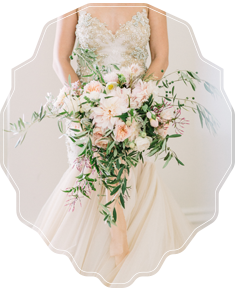Note: This post is not directed at any of my clients, but rather at the increased popularity of amateur editing programs.
There seems to be a trend right now for everyone to want to try their hand at photo editing.
You get your images back from your professional photographer. You tell them you love them.
Then, you decide to pull them up in some form of editing software that you own and are experimenting with. You change the colors, add ‘unusual’ textures, shapes, borders, or even simply crop the image or turn it to black and white.
You have just committed a federal crime.
Yes, you have committed copyright infringement. The photographer that took the photo automatically owns the sole copyrights to the images. Without a signed release you are not able to reproduce, alter, or download images. Copyright infringement with regards to your photos includes the following:
-Altering an image in any way–including but not limited to editing, cropping, or adding to the image
-Scanning an image
-Claiming another’s work for your own
-Downloading previews
The most common issue with most photographers at present, is clients that want to re-edit their images.
There are several issues with this beyond the fact that it is copyright infringement. Approaching first from the client’s perspective, if a client feels the need to re-edit the images this may mean that they are not happy with the original images produced by the photographer. If this is the case, please communicate with your photographer. Most are happy to convert images to black and white, sepia, or make basic changes. Be respectful of the photographer’s style, and know that they will not do anything outside of their artistic approach, but communicate if you have concerns.
From the photographer’s standpoint, this is our art. Photographers spend a great deal of time from concept to post processing an image. We edit according to our artistic style and usually our ‘brand’ is defined by out photos being edited in a particular style. When someone takes an already processed image and decides to re-edit it, they are doing several things:
-Compromising the quality of the image–editing in sub par programs, or downloading web resolution images severely compromises the quality of the images.
-Altering someone’s art–You hired your photographer for their artwork. That mean the final, finished product. If you prefer to to book a photographer who will provide you with RAW images and the copyright release so you can edit them yourself, please search for such a photographer.
-Reflecting poorly on the photographer. Altered images that are posted online reflect on the photographer’s work. Every google search, friend that asks who took your photos, or re-pin on pinterest advertises an altered image as being part of the photographer’s work. Photographers wok had to compile a portfolio of work that represents their brand–meaning the entire package of what you are getting with that photographer, right down to the editing style.
So what to take away from this if you are looking to book your photographer?
1) Select your photographer carefully. You should have full trust in them. Explore their portfolio and make sure that their aesthetic, skills, and editing style is a match for you.
2) If you want the rights to edit your own photos, ask up front. Be sure to read your contract carefully. Remember that the editing process is a part of the photographer’s art.
3) Don’t settle. If you ‘kind of’ like your photographer, but feel like you can do a better job re-editing the images, don’t book. You deserve to LOVE your photos!
I LOVE my clients. LOVE. I know that most people who aren’t photographers don’t realize that re-editing images causes problems, let alone that it is illegal; but, take care in ensuring that you book the right photographer for you. You should be able to trust that they will deliver images for you that require no further editing. Additionally, love your photographer back! Remember that this is an art form, and like any other artist heart and soul is put into every image.
–

.jpg)
.jpg)
.jpg)